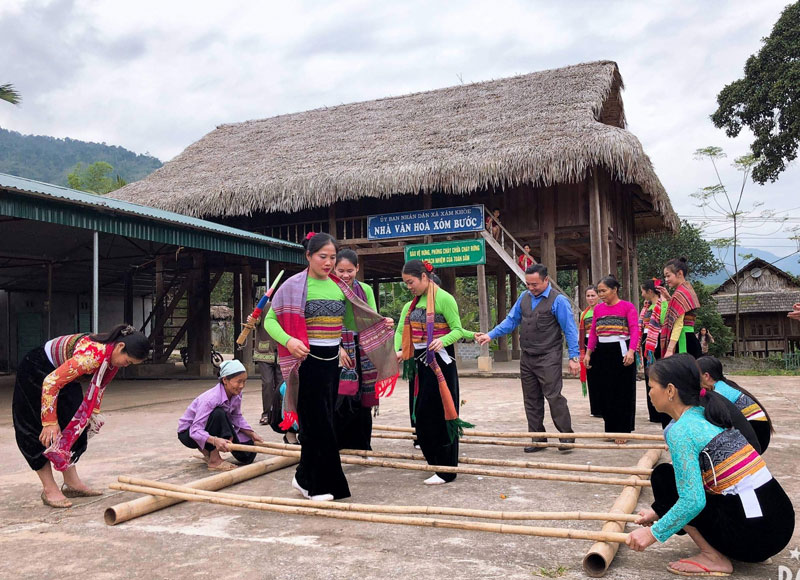


 Determining the appropriate developing direction, Buoc
hamlet, Xam Khe commune (Mai Chau) is becoming a prominent community tourism
destination associated with new rural area with many unique and attractive
tourism products.
Determining the appropriate developing direction, Buoc
hamlet, Xam Khe commune (Mai Chau) is becoming a prominent community tourism
destination associated with new rural area with many unique and attractive
tourism products.
The Resolution of the XXV Party Congress of the district has determined the following goals: Up to 2020, Mai Chau district is trying to become a tourism site of high quality associated with building new rural areas. This continues to be the "guideline” for the development of community tourism associated with building new rural areas in Mai Chau. At the same time, it helps to reinforce the power for the Party Committee and the appropriate authorities at all levels to simultaneously implement many other important decisions.
Specifically, they are the Resolution No.04 of the District’s Party Executive Committee on the restructuring plants and animals associated with building new rural areas and developing tourism in the period of 2016-2020, the project of developing tourism in Mai Chau district in the period of 2015-2020 with a vision to 2030, the Resolution No.06 of the Provincial Party Executive Board on making Mai Chau district become a national tourism site by 2020 with a vision to 2030, the Plan for developing the National in Mai Chau and the regulations on tourism management in the planning area and so on. The decisions on developing community tourism of high quality associated with building new rural areas not only reflect the political determination of the Party and they but they also create a high consensus of the community of ethnic people in the district.
After 10 years of implementing the journey of "the will of the Party and the people”, the desire to wake Mai Chau up is gradually being realized through comprehensive socio-economic results. In terms of building new rural areas, six communes including Mai Ha, Chieng Chau, Tong Dau, Van Mai, Tat Khoe, Na Phon have met the standard.
The remaining communes are also excited on the road of common development, closing the distance compared to from the destination to reach. Looking back at the point of ten years ago, the new rural areas in Mai Chau district have come a long way with the most powerful resource of the development of the tourism. In the whole province, up till now Mai Chau has the only locality that has been planned to become the National Tourism Destination by 2020 with a vision to 2030. According to the article 7 of Decree No.92/2007/ND-CP on the conditions for recognition as the national tourism destination, tourism in Mai Chau is about to reach the destination.
However, according to the Tourism Law of 2017, as there is no longer a list of national tourism destinations but there are only regulations on national tourism destinations and provincial tourism areas, the closest target that Mai Chau tourism is heading is to be recognized as the provincial tourist destination by 2020, creating a basis for submission to the Prime Minister to supplement Mai Chau’s plan into a national tourism site. Certainly, this will be a significant milestone on the development journey so that Mai Chau district is ready to become a community tourism site associated with building the most typical new rural area in the whole province.